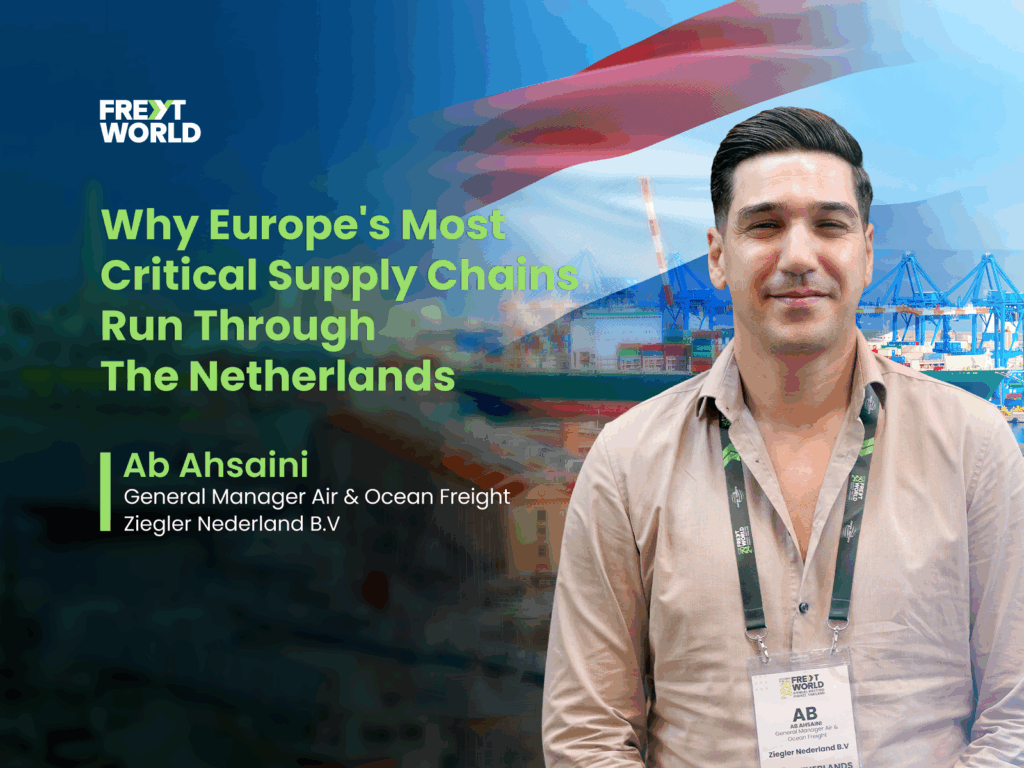By Kristina Petarka, Global Network Manager of Intereuropa Group

Navigating the complex network of Balkan logistics presents a unique set of challenges for global businesses. For years, companies have relied on traditional routes, which can often be plagued by congestion and indirect transit paths. But what if there was a smarter, more efficient route that has been hiding in plain sight—a strategic gateway that could unlock the entire region with greater speed and reliability?
As of July 2025, that gateway is no longer an emerging concept; it's a reality. That reality is Albania.
To understand this strategic shift, we turn to an on-the-ground expert whose daily work involves capitalizing on this potential: Kristina Petarka of Intereuropa Group, Freyt World’s trusted member in Albania. She provides a firsthand look at why Albania is rapidly becoming the new lynchpin for Balkan-bound cargo.
The Geographic Sweet Spot: A Strategic Asset
At the heart of Albania's potential is its geography. Situated on the Adriatic coast, it offers a direct maritime entry point that is geographically closer to key inland markets than many alternative ports. Its proximity to North Macedonia, Kosovo, Montenegro, and Greece makes it a natural hub for regional distribution.
As Kristina Petarka explains, this advantage goes far beyond lines on a map.
"From a pure geographical standpoint, Albania offers the most direct maritime link for goods destined for landlocked nations like Kosovo and North Macedonia. We encourage clients to think beyond simple map distances; this strategic positioning translates directly into tangible savings on transit time, fuel costs, and ultimately, a more competitive supply chain."
The Engine Room: A Deep Dive into the Port of Durrës
A prime location must be backed by world-class capability, and this is where the Port of Durrës has become the beating heart of Albania's logistics strategy. The port has undergone a significant transformation, evolving into a modern, efficient hub capable of handling a diverse range of cargo with impressive speed.
Kristina offers a firsthand perspective that challenges outdated perceptions of the region's infrastructure.
"The perception of regional ports can often be outdated. Here in Durrës, significant investments over the last 24 months have revolutionized our capabilities. We're seeing consistently faster vessel turnaround times and a container handling capacity that now rivals more established Adriatic ports. For businesses tired of the congestion and delays found elsewhere, Durrës is no longer just an alternative; it's a first-choice strategic decision."
This shift transforms the port from a secondary option into a primary strategic asset for any company serious about optimizing its European logistics.
Unlocking the Hinterland: Seamless Transit to Neighbouring Markets
A world-class port is only as good as its connection to the hinterland. This is where Albania truly shines, offering streamlined access via modern transport corridors like the crucial Corridor VIII, which links the Adriatic to North Macedonia and beyond.
However, the most critical advantage is the efficiency of customs procedures for transit goods. This is where theory meets practice, and where expert knowledge becomes invaluable.
"The real key to unlocking the Balkans via Albania lies in mastering the transit process," Kristina notes. "The infrastructure gets the container here, but expertise gets it to its final destination without delay. The critical element is a deep understanding of the nuances in customs documentation for transshipment versus importation. With a knowledgeable local partner managing this, clearing goods for onward travel to Pristina or Skopje becomes a seamless, predictable part of the journey, effectively eliminating the cross-border bottlenecks that can derail a supply chain."
Expertise: The Final and Most Critical Link
Infrastructure and geography create potential, but it's human expertise that turns that potential into reliable performance. Navigating local regulations, coordinating inland transport, and providing real-time problem-solving are what make a supply chain truly resilient. As a core member of the Freyt World network, Intereuropa Group provides this critical layer of service, from customs brokerage and warehousing to final-mile delivery.
Your New Balkan Strategy Starts Here
Albania is no longer just a destination on the map; it is a dynamic and essential gateway to the heart of the Balkans. By combining its strategic location, modernized port infrastructure, and the deep, local knowledge of logistics professionals, it offers a compelling solution for businesses looking to build a faster, smarter, and more resilient supply chain.

Freyt World Blog Contributor
Freyt World is a global logistics network uniting members from around the world. Our mission is to revolutionize global logistics through collaboration and innovation. Our platform goes beyond networking, enabling members to excel and grow together, featuring articles by logistics professionals for their peers. This series will cover industry-relevant issues and news, providing valuable insights for professionals in the field.


